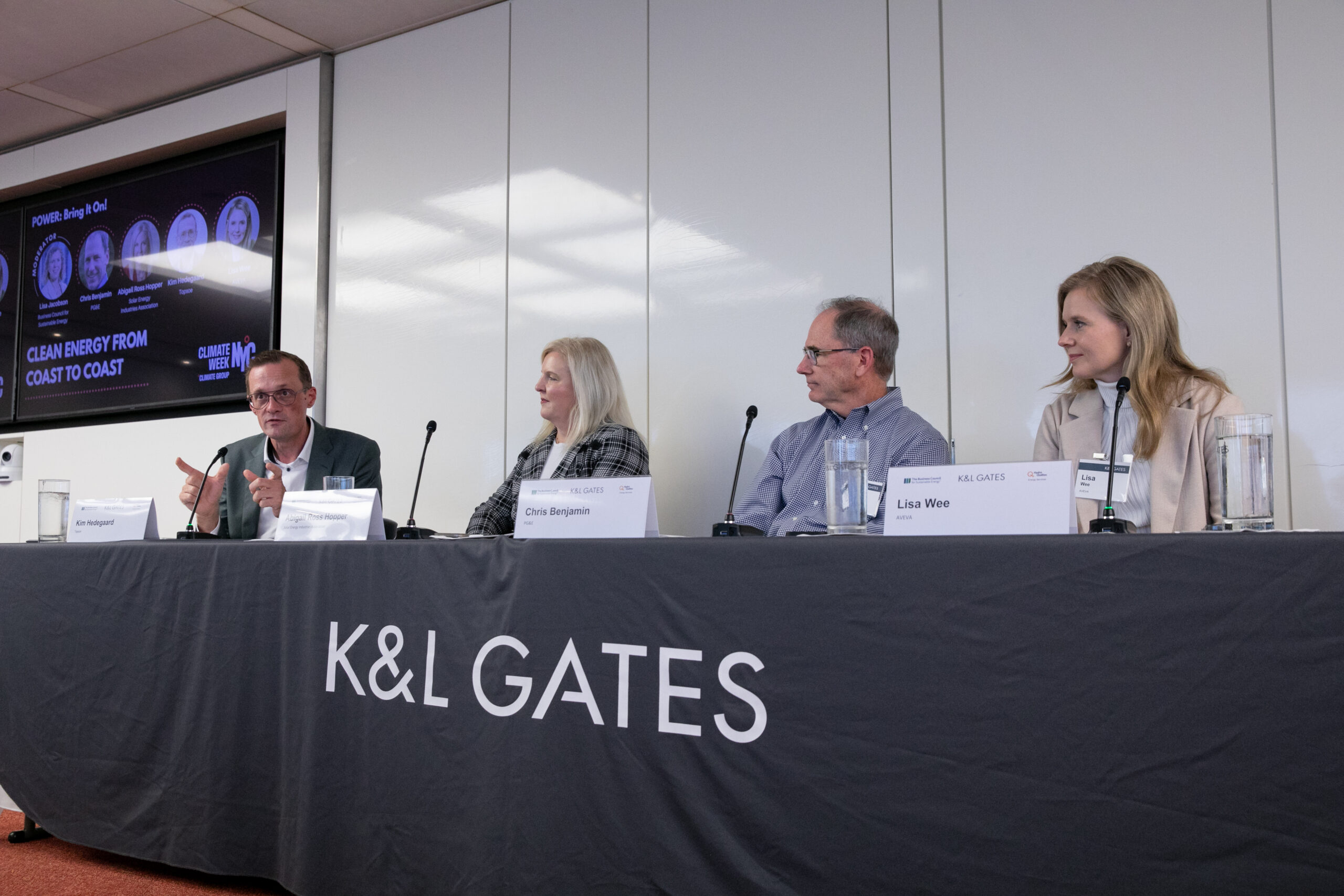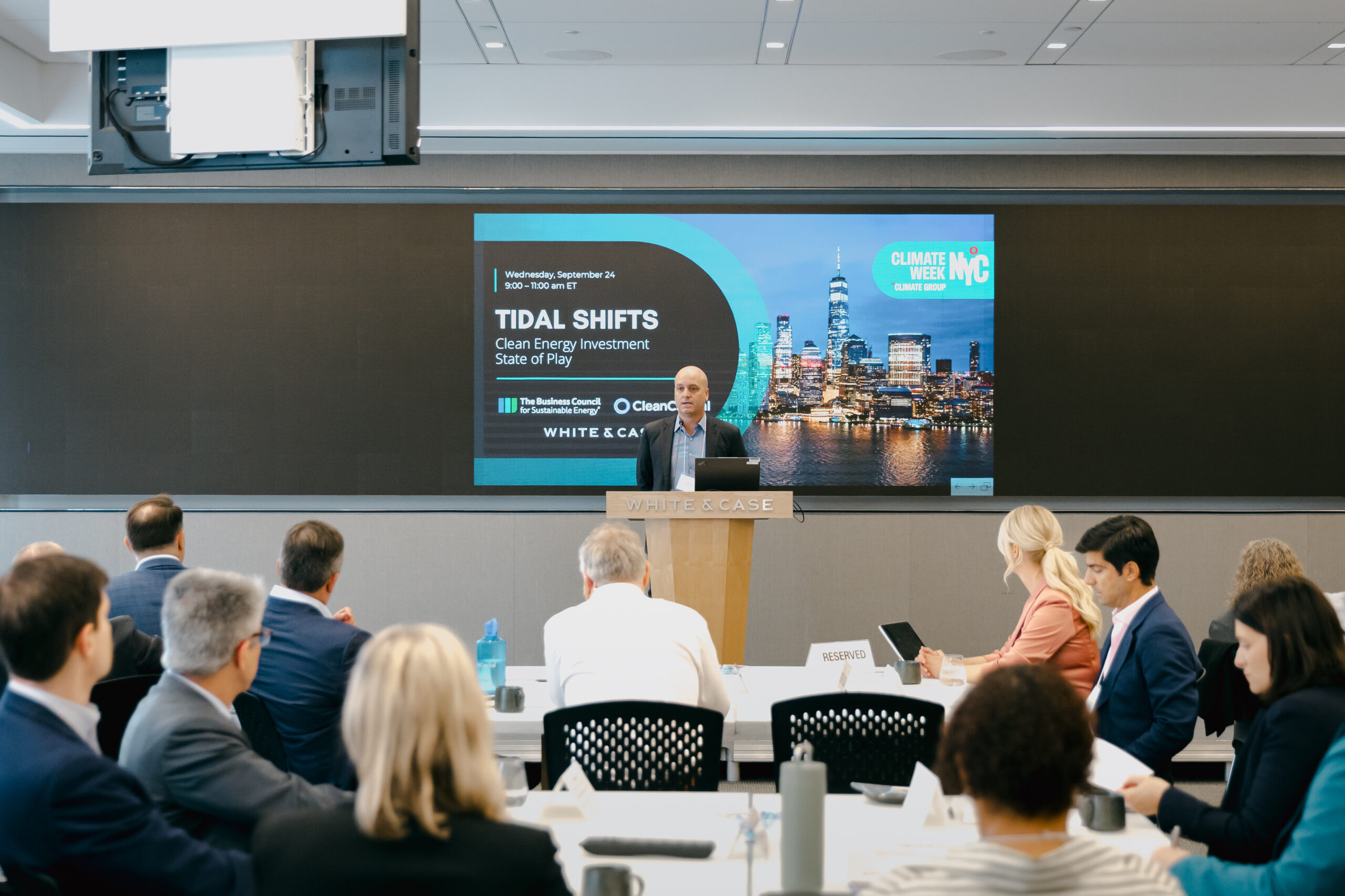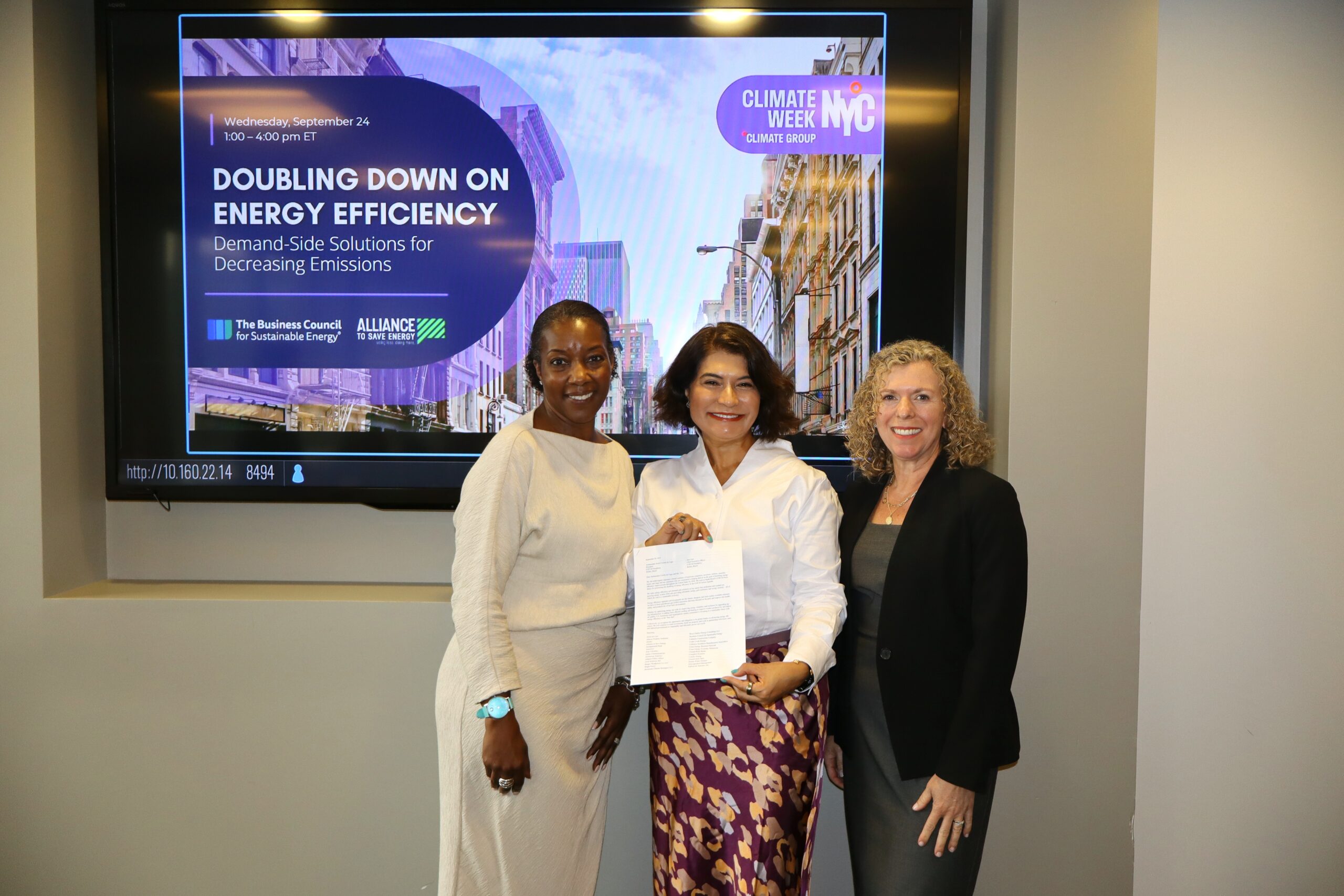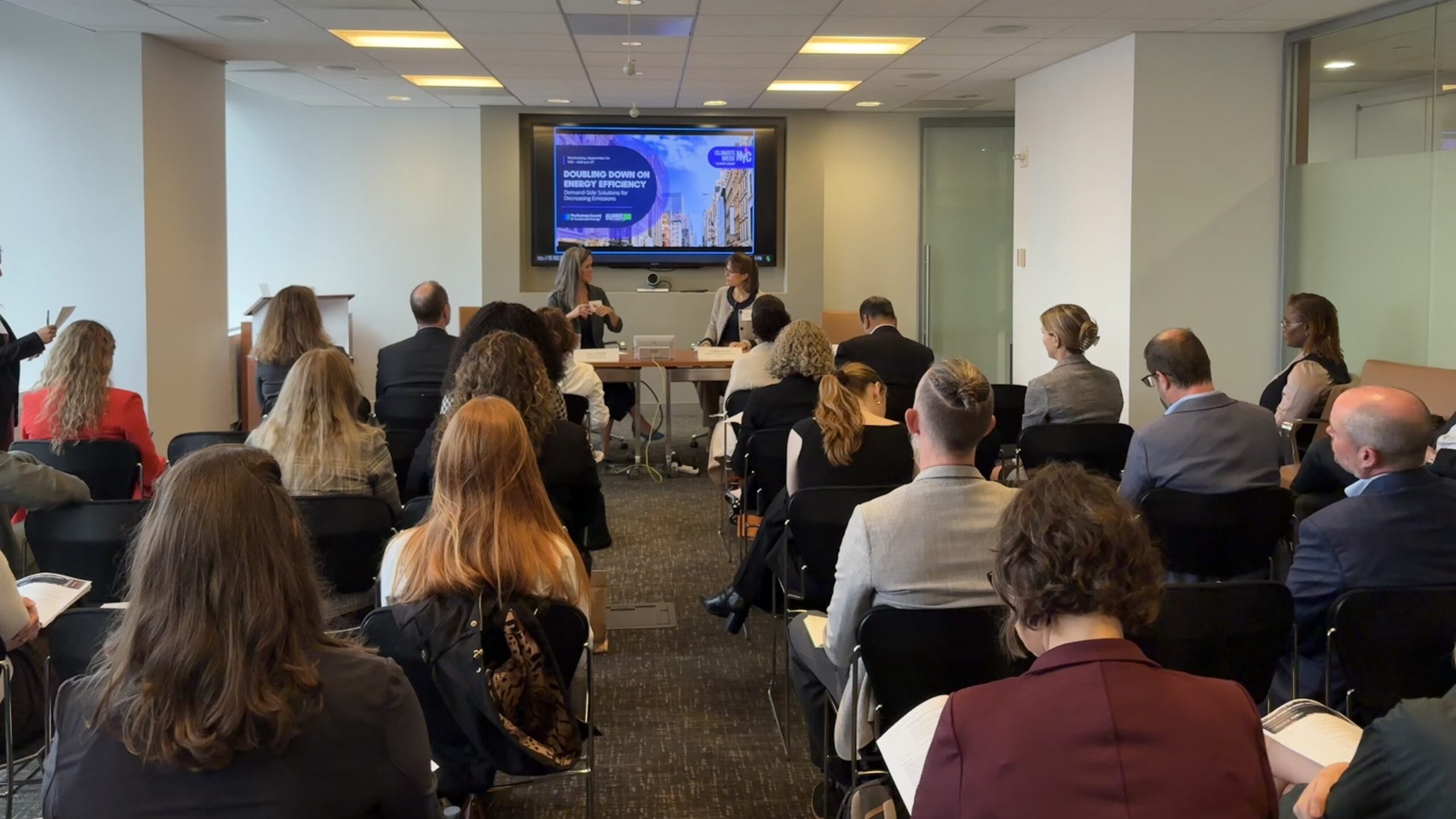By Lizzie Stricklin, Communications Manager, BCSE
Last month, BCSE led its largest delegation to date to the annual Climate Week NYC, with more than 30 member companies and organizations in attendance. BCSE hosted three signature events and supported 40+ member events at this key international gathering.
A new thread in conversations this year was how to meet our climate goals while also meeting anticipated energy demand growth. At BCSE’s events, members answered this question in the affirmative. BCSE members have a readily available set of demand- and supply-side solutions that are ready to quickly and sustainably meet this rising demand now.
Here are BCSE’s top three takeaways from Climate Week NYC:
1. Energy demand is on the rise, and BCSE’s portfolio of demand- and supply-side energy solutions can meet this new load.

From 2023 to 2024, global electricity consumption rose by 4.3% – or more than the total consumption of Japan, according to the International Energy Association (IEA). Looking out to 2027, the IEA predicts developing economies will remain the engines of growth, accounting for around 85% of additional global electricity demand, with China providing more than half of the gains.
A broad portfolio of energy solutions is ready to quickly, affordably, and sustainably meet this demand growth while bolstering energy security and resiliency. At BCSE’s multi-sector event co-hosted by Hydro Québec and K&L Gates, public and private sector leaders discussed the need to deploy technologies to unlock new resources from our current supply while also expanding generation capacity with affordable, resilient solutions – in both New York State and across the country.
2. Market trends reveal that despite federal uncertainty, U.S. companies are committed to investing in and deploying sustainable energy.

According to a report by the Clean Energy Buyers Association and Woods Mackenzie, large U.S. companies are set to drive an unprecedented demand for at least 275 GW of carbon emissions-free energy by 2035 from both new and existing electricity load. Recent announcements like Google’s purchase of 3,000 MW of hydropower and Meta’s 20-year power purchase agreement for nuclear demonstrate the continued appetite for sustainable energy solutions by the U.S. private sector.
At BCSE’s business roundtable with CleanCapital and White & Case, participants discussed how businesses and investors can meet the moment, as transition finance is poised to capture strong investment opportunities and bolster diversified portfolios. As policy winds continue to shift, it falls to investors and developers to set the pace for long-term investment in America’s energy future.
3. Businesses and governments have a tremendous advantage if we work together to meet our climate goals and deliver sustainable energy solutions.

At COP 28 in 2023, countries agreed to chart a pathway for the energy transition that included doubling the global average annual rate of energy efficiency improvements and tripling renewable energy capacity by 2030. Enshrined in the text of paragraph 28 in the UAE Consensus, these goals are a milestone and north star for accelerated investment in the clean energy transition.
To help countries realize these goals, the private sector is an essential partner in the redirection of investment and deployment of a portfolio of energy efficiency and sustainable energy solutions. At BCSE’s energy efficiency event with the Alliance to Save Energy, a BCSE member, the two coalitions presented a letter signed by 150+ U.S. businesses and organizations to the COP 30 presidency in support of the UNFCCC goal of doubling the global rate of energy efficiency improvements by 2030. Now is the time for continued public-private partnerships to seize on this interest and make real progress toward unlocking new energy resources, improving reliability, and lowering costs worldwide.
What’s next?
From November 10 – 21, BCSE will lead a coalition of U.S. businesses and energy trade organizations to the 30th Conference of the Parties (COP 30) to the United Nations Framework Convention on Climate Change in Belém, Brazil. As the COP 30 Presidency works to drive climate action through all societal sectors, BCSE members will share real world implementation experiences from the frontlines of the energy transition and build new relationships for greater action.
Headed to Brazil? Connect with BCSE to continue these conversations on strategies to ensure global access to clean, affordable, and reliable energy.
About the Author: Lizzie Stricklin is the Communications Manager for the Business Council for Sustainable Energy.

